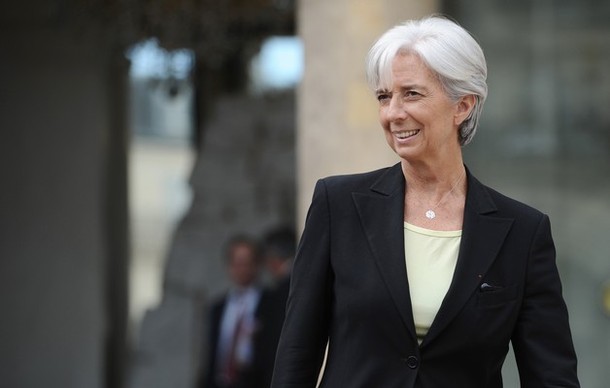
While neighboring Germany has been praised for record levels of economic growth, France has been criticized for setting targets it will have a hard time reaching.
Even though the French government recently reduced its economic growth targets for 2011 from 2.5% to 2.0%, some think the lower figure is still too optimistic. Critics are also skeptical France can achieve its goal of reducing the country’s budget deficit to 6% next year, a pledge based on the 2.5% growth level. It is unclear the government’s plan to eliminate €10 billion in tax loopholes will fully compensate for slower growth.
Though Laurence Boone of Barclays Capital points out that “France does not have a good track record of achieving its targets,” Finance Minister Christine Lagarde remains confident. She says the growth targets “[are] realistic and prudent,” adding that even if the market consensus of 1.5% growth was revised upwards, it would “not grant much credit to the reforms we have implemented and to the added flexibility in the economy.”
Lagarde insists France is determined to “do whatever it takes” to bring its budget deficit down to 6% in 2011. “That is a very, very strong commitment on the part of the president and the government,” she said.
In response to the contention that France is falling significantly behind Germany in economic strength, Lagarde responds “I don’t think we should be short-sighted. It is obvious that in 2009, because of its structure, Germany took a much bigger hit than France. It is hardly surprising that they would catch up faster, but that is only due to the fact that they went down farther.”
A Financial Times editorial backs up the Finance Minister’s caution. “Germany’s undeniably impressive rebound followed a painful squeeze inflicted on its export-heavy economy by collapsing world trade. France’s more balanced economic structure made its downturn softer than in any other large European economy.” It further states, “More important than how close Ms Lagarde comes to her 2011 deficit target of 6% of output is whether she takes the opportunity to rein in spending in the process.”
By comparison, Germany’s government deficit for the first six months of 2010 was 3.5%, lower than France’s 8% but still above the Maastricht Treaty upper limit of 3% for Euro participants.
While efforts to reduce deficits are generally viewed positively, Nobel Prize-winning economist Joseph Stiglitz believes they can be counterproductive. “Cutting back willy-nilly on high-return investments just to make the picture of the deficit look better is really foolish. Because so many in Europe are focusing on the 3 percent artificial number, which has no reality and is just looking at one side of a balance sheet, Europe is at risk of going into a double-dip.”
Whether or not France reaches their economic targets, the fact that they are setting the bar high indicates the government commitment to recovery and belief in what it can achieve. While coming short of aggressive goals may not sound as good as surpassing small ones, it should reassure Europe and the global economy that France is not settling for minor improvement, but shooting for a stronger level of stability.
Scott Bleiweis is an intern with The Atlantic Council and contributor to its web publications, New Atlanticist and NATOSource. He is currently pursuing a masters degree in International Studies with the Korbel School of International Studies at the University of Denver. Photo credit: Getty.
Image: French%20Finance%20Minister%20Christine%20Lagarde.jpg

